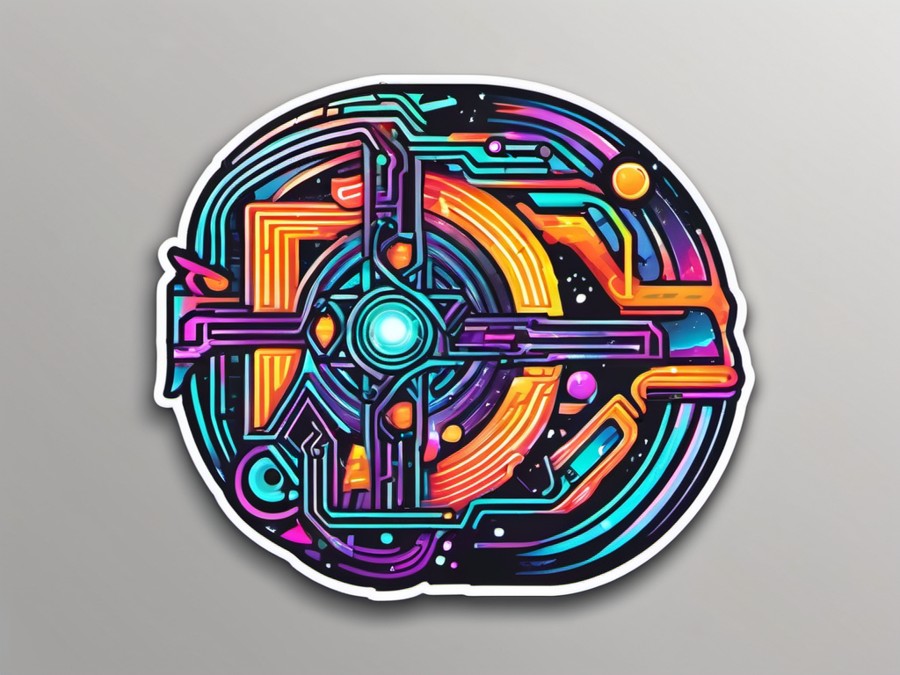· Charlotte Will · Video Converters · 7 min read
What is the Difference Between Hardware and Software Video Converters?
Discover the key differences between hardware and software video converters, their benefits and drawbacks, and learn how to choose the best solution for your needs. Whether you're a professional editor or just organizing home videos, this guide helps you make an informed decision.

When it comes to managing your digital media, understanding the difference between hardware and software video converters can make a world of difference. Both have their unique advantages, but choosing the right one depends on your specific needs and preferences. Let’s dive into what makes each type special and how you can decide which is best for you.
Understanding Video Converters
A video converter is a tool that transforms your videos into different formats, resolutions, or codecs. This process is crucial for ensuring compatibility across various devices and platforms. Whether you’re a professional video editor or just someone who likes to keep their memories organized, knowing how to convert videos is a must.
What are Hardware Video Converters?
Definition and Description
Hardware video converters are physical devices designed specifically for converting video formats. These units often come with specialized hardware that optimizes the conversion process, ensuring high-quality output and minimal system strain.
Types of Hardware Video Converters
Dedicated Hardware
Dedicated hardware video converters are standalone devices that plug into your system and handle all the conversion tasks. Examples include USB-based converters that plug directly into your computer or HDMI video converters for TVs. These devices are typically easy to use and provide fast, high-quality conversions.
Embedded Systems
Embedded systems are integrated into other devices, such as multimedia players or set-top boxes. They offer seamless video conversion capabilities without requiring additional hardware. These are often found in more specialized equipment designed for professional use.
What are Software Video Converters?
Definition and Description
Software video converters are applications that run on your computer, tablet, or smartphone. These tools leverage the processing power of your device to convert video formats. They come in various forms, from desktop applications to browser-based online tools.
Types of Software Video Converters
Desktop Applications
Desktop applications are software programs that you install on your computer. Examples include popular tools like HandBrake and Adobe Media Encoder. These applications often provide a wide range of features, including batch conversion, customizable settings, and advanced editing capabilities.
Online Tools
Online video converters are web-based applications that you can access via your browser. They typically require you to upload your video file, select the desired format, and then download the converted file. These tools are convenient for quick conversions but may have limitations in processing speed and file size.
Key Differences Between Hardware and Software Video Converters
Performance
Processing Speed
Hardware video converters often outperform their software counterparts in terms of processing speed. This is because they are optimized specifically for video conversion tasks and can process data more efficiently.
System Resources
Software video converters, on the other hand, can be resource-intensive. They utilize your device’s CPU and RAM to carry out conversions, which can slow down other tasks or even cause system lag.
File Format Support
Range and Flexibility
Hardware video converters usually support a wide range of file formats due to their specialized nature. Software video converters can be somewhat limited by the codecs and libraries they support but often provide updates to stay current.
Editing Capabilities
Advanced Features
Software video converters often come with additional editing features such as cropping, adding watermarks, and adjusting video parameters. These tools are highly versatile and can be a one-stop solution for both conversion and basic editing tasks.
Benefits of Hardware Video Converters
Speed and Efficiency
One of the primary advantages of hardware video converters is their speed. Dedicated hardware can process videos much faster than software solutions, making them ideal for large projects or professional settings.
Quality of Output
Hardware video converters often produce superior video and audio quality thanks to their specialized processing units. This is particularly important for professionals who need high-quality outputs for projects, presentations, or broadcasts.
Reliability
Hardware video converters generally provide consistent performance because they are designed to handle the specific task of video conversion. This reliability makes them a preferred choice for critical workflows where consistent quality and speed are crucial.
Advantages of Software Video Converters
Cost-Effectiveness
Software video converters are often more cost-effective than hardware solutions, especially since many online tools and basic software applications are available for free. Even premium desktop applications can be more affordable than investing in specialized hardware.
Accessibility
Software video converters are highly accessible, with numerous options available for various platforms. They can be easily downloaded and installed on most devices, making them a convenient choice for casual users.
Flexibility
Software video converters offer a high degree of flexibility, allowing users to adjust settings and customize the conversion process according to their needs. This makes them a good choice for users who require specific customizations or tweaks in the conversion process.
Choosing the Right Video Converter for Your Needs
Evaluating Your Requirements
The first step in choosing the right video converter is to evaluate your needs. Consider what you’ll be using the converter for—whether it’s for personal use, professional projects, or something in between. This will help you determine the level of performance, features, and quality you require.
Considering Compatibility
Compatibility is another crucial factor to consider. Ensure that the converter you choose is compatible with your devices and operating systems. This is especially important if you’re using a mix of different hardware and software platforms.
Checking Customer Reviews
Reading customer reviews can provide valuable insights into the performance and reliability of a video converter. Pay attention to comments about speed, quality, ease of use, and any common issues users might face.
Real-World Examples and Use Cases
Professional Video Editors
For professional video editors, hardware video converters are often the preferred choice due to their speed and reliability. These editors need tools that can handle high-quality video files quickly and efficiently, ensuring that their projects meet the required standards.
Casual Users
Casual users, on the other hand, might find software video converters more suitable. These tools are often easier to use and require less technical expertise, making them ideal for converting home videos or other personal projects.
Future Trends in Video Conversion Technology
Integration of AI
The integration of Artificial Intelligence (AI) is a significant trend in video conversion technology. AI can enhance the capabilities of both hardware and software converters, automating tasks and improving the quality of conversions.
Cloud-Based Solutions
Cloud-based video converters are another emerging trend. These solutions leverage the power of cloud computing to process videos, offering increased speed and flexibility without requiring local hardware resources.
Conclusion
Understanding the difference between hardware and software video converters is essential for optimizing your digital media workflow. Hardware video converters offer speed, reliability, and high-quality outputs but come at a higher cost. Software video converters provide flexibility, accessibility, and often come with additional editing features at a more affordable price.
By considering your specific needs, the type of content you’ll be working with, and your budget, you can make an informed decision about which type of video converter is best for you. Whether you’re a professional editor or just someone looking to convert home videos, there’s a solution that fits your needs.
Frequently Asked Questions (FAQs)
Q1: Can I use both hardware and software video converters together?
Yes, you can. Using both hardware and software video converters together can provide a balance between speed and flexibility. For instance, you might use hardware for initial conversions and then switch to software for any required edits.
Q2: Which is more suitable for beginners, hardware or software converters?
Software video converters are generally more suitable for beginners. They are often easier to use, have a wide range of features, and many come with user-friendly interfaces. Additionally, there are numerous free or low-cost options available for casual users.
Q3: Are there any security concerns with using software video converters?
Security can be a concern when using online software video converters. When you upload your files to these platforms, there is a risk that your data could be accessed or compromised. Always ensure you’re using a reputable service and consider the sensitivity of the files you’re converting.
Q4: Can hardware video converters improve the quality of old videos?
Yes, hardware video converters can often improve the quality of old videos. They are designed to handle high-quality conversions and can enhance both video and audio aspects of older recordings. This is especially useful for archiving or restoring old footage.
Q5: What are some common issues faced when using video converters?
Some common issues include compatibility problems, where the converter doesn’t support certain file formats or codecs. Additionally, performance can be a challenge with software converters, leading to slower processing times or system lag. It’s also important to consider the impact on video quality, as some converters might reduce resolution or introduce artifacts during the conversion process.
For more information on related topics, check out:




